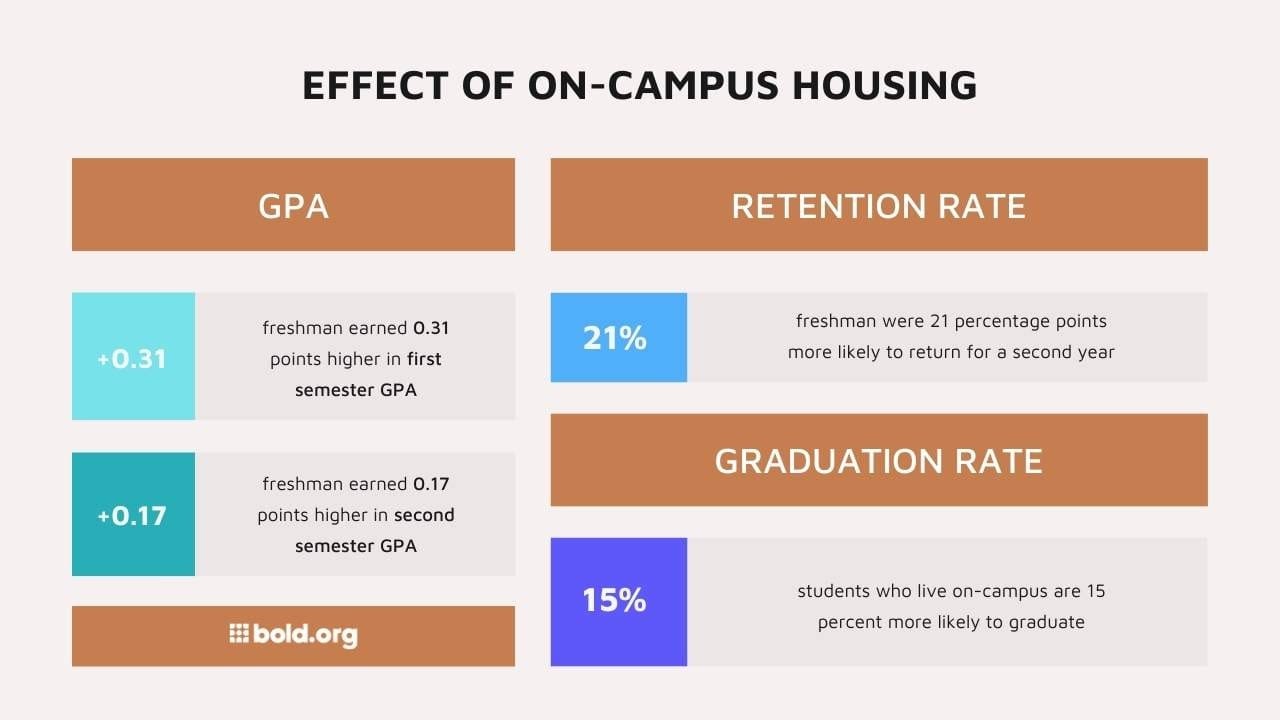Do Community Colleges Have Dorms? An On-Campus Housing Guide


Answer the perpetuating question: "Do community colleges have dorms?" Discover on-campus housing options, costs, and tips. Start your college journey strong.
Traditional four-year colleges often provide students with the dream of those iconic student campus communities that we often watch in movies. Who has never imagined being part of a fraternity or sorority? However, the reality for many in the United States is that affording the American college dream is often impossible right after graduating high school.
Many students who graduate sometimes have to also work part-time to pay living expenses. Luckily, the American academic scene contains community colleges which can be a more affordable education option for many high school graduates. However, some provide dorms and some do not which makes the housing situation a bit more complicated than a traditional four-year university with residence halls.
As a former community college student, I have been through a variety of different housing options. Through my personal experience and thorough research, let me share some insider info into dorms at community colleges.
The costs of higher education are a challenge that many students face. This is a problem that we at Bold.org care about. Sign up for a free applicant profile and start saving for the education you deserve!
Get Matched to Thousands of Scholarships
Create your Bold.org profile to access thousands of exclusive scholarships, available only on Bold.org.
Create Free ProfileUnderstanding Community College Housing
The short answer to whether community colleges have dorms is: it depends. Community college housing can be quite different from the traditional dormitories found at four-year universities. While not all community colleges offer on-campus housing, those that do vary immensely as well. Understanding these housing options is crucial for students considering attending a community college, as it can greatly impact their college experience.
On-Campus Housing Availability
Unlike universities, many community colleges do not have dorms or on-campus housing facilities. However, a growing number of community colleges are recognizing the importance of providing students with convenient and affordable living arrangements. These schools may offer traditional dorms, suite-style apartments, or even housing partnerships with nearby apartments or host families.
I'd recommend checking your school's housing website to understand the different options available to you. Feel free to also email their residential life office; they will be more than happy to talk you through their housing options.
Reach your community college goals with Bold.org! Discover scholarships to cover tuition, fees, and more. Invest in your future today.
Pros and Cons of On-Campus Housing at Community Colleges
Living on-campus can be a wonderful experience for many students but there are also barriers that may make this option unsuitable for others. Let's examine the pros and cons of on-campus housing at community colleges.
Pros
- Immersive college experience: On-campus housing at community colleges offers a more immersive college experience, providing students with easier access to academic resources, active participation in student activities, and the opportunity to build strong connections within a community of peers.
- Transportation savings: By living on campus, students can significantly alleviate transportation challenges, saving both time and money that would otherwise be spent commuting to and from school.
- Balancing responsibilities: Proximity to campus allows students to more effectively balance their academic studies with part-time jobs or family responsibilities, contributing to a smoother and more manageable college experience.
Higher academic performance: Research from the University of Connecticut suggests that students who live in on-campus housing tend to achieve higher GPAs compared to those who live off-campus, highlighting the potential academic benefits of staying close to the college environment.

Cons
- Limited availability: On-campus housing at community colleges is often limited, with fewer options compared to four-year universities, which may result in waitlists or difficulty securing a spot.
- Higher costs: While generally more affordable than university housing, on-campus living at community colleges can still be expensive, especially if meal plans and utilities are not included.
- Less independence: Living on campus may offer less privacy and independence, with rules and regulations that might not appeal to students who prefer a more autonomous living environment.
- Social limitations: Community college campuses often have fewer social events and extracurricular activities compared to larger universities, which can lead to a less vibrant on-campus social life.
- Commuter culture: At many community colleges, the majority of students commute, leading to a less cohesive campus community and fewer opportunities for social interaction among on-campus residents.
Even at community colleges, on-campus dorms can still be quite expensive. Consider alleviating some of that cost with these exclusive scholarships, tailored specifically towards community college students!
Create Your Free Profile to Apply for Scholarships Today!Personal Experience
As a student who have lived first off-campus as a community college student, and on-campus after transferring to the university housing, I am able to say that living on campus made a huge difference in my life because the university took care of all problems that arouse throughout my staying in the dorms. Furthermore, I found a better network of academic and emotional support in my roommates who shared more similar interests.
However, many of my college friends opted to stay off campus for various reasons, such as living in an area that they like better and sometimes paying cheaper costs. Some also preferred the independence and privacy of not living directly beside academic buildings.
I recommend that students should make a personalized pros and cons list, emphasizing the features of on or off-campus housing that they find most valuable. After analyzing, make a decision based on that. Remember that your focus is to make the most of your time as a student, and housing can make a huge difference in your learning.
Community Colleges with Dorms
If after weighting the pros and cons, you've decided you want to secure a dorm in a community college, we've got you covered! After scouring the internet and college websites, we've compiled a list of some of the best community colleges that offer on-campus housing options to elevate your standard of living in university.
Columbia College
Among the California community colleges, Columbia College, located in Sonora, California provides students the possibility to live on campus housing. Students have the option to apply for a semester or full year term. Columbia College also selects a small group of students to provide financial assistance for their campus housing.
Jackson College
Jackson College is located in Jackson County, Michigan, and the institution provides traditional residence halls with a campus community with various living facilities. The students have the option to live in a single room for about $3000 a semester, or live with roommates for about $2800 or less.
Additionally, Jackson College understands that exists many independent students who are parents. Thus, Jackson College offer the Jet Village Family Housing. The program specifically supports students with dependent children through employment services, academic tutoring, and mentoring.
If you're a student-parent interested in the Jet Village Family Housing program, you'll also be interested in our unique scholarships for parents!

Mowhawk Valley Community College
The Mowhawk Valley Community College is part of the SUNY (State University of New York), which are various academic campuses across the states of New York. The benefit of studying in a Community College from SUNY is that students are likely to be able to transfer all their credits to a four-year university of SUNY. Transfer students from other community colleges can sometimes not transfer all credit hours to another university.
The cost of residency and meal plans at Mowhawk Valley Community College can be around $6000. The price will vary if students decide to get a bigger room and a better meal plan.
Central Arizona College
Located in Coolidge, Arizona, Central Arizona College offers housing for about 250 students, and all students have to share the room with another college student. The rooms are furnished with basic furniture and the cost of housing and meal plan will be around $4500. Additionally, students can opt into a specific community they want to live in, but the final decision is made by the Director of Residence.
Butler Community College
Butler Community College is located in the beautiful state of Colorado. The university separates men and women in their four distinct housing options so if same-sex housing if what you're looking for, Butler may be the perfect option for you. Additionally, the community has a vivid lifestyle that includes social and civic engagement activities to improve students' professional and personal lives.
Similar to the way that residence halls often have same-sex options, we provide scholarships for women and scholarships for men. Check them out now and start tackling student debt!
Reedley College
Among the California Community colleges, Reedley College is also an institution providing dorms to its students. The residence hall has resident assistants, desk assistants, utility workers, and managers to help students with living circumstances. Additionally, the university ensures that students have the opportunity to get involved with social and leadership events.
Sheridan College
Located in the state of Wyoming, Sheridan College is another community college that offers on-campus housing options. The campus has six on-campus dorm options for students, including houses complete with porches and traditional college residence halls. Living on campus and having access to academic support gives students a better educational structure, helping them to focus more on studying and improving their GPA.
College of the Redwoods
Located in Eureka, California, the College of Redwoods is a great option for students who appreciate their amenities. The Del Norte and Mendocino Halls are equipped with cable TV service, wifi, laundry rooms, study halls and recreation lounges (which include foosball and ping pong tables). Residents will also appreciate a serene view of the magnificent redwood forest which the residence halls sit right at the edge of.
College of the Siskiyous
The College of the Siskiyous is located in northern California and has campus housing called the lodges due to its wood and green environment, giving the residents an idea of living in a very green natural area. There are two housing options, the Juniper Hall and the Ponderosa Hall, with about 154 students. Each residence hall has a large social lounge where students can gather and do different activities.
Shasta College
Shasta College is located in Redding, California, and has two dormitories, one for women and other for men, each has a capacity of 63 students. Shasta college administration requires students to maintain a GPA of at least 2.0 if they want to continue living in the dorm rooms, and the contracts are from august to may, requiring at least 10-month of living. The cost for sharing a room is about $4,500, and for a single room is about $8,500.
We know that applying for scholarships can be stressful. That's why you should browse through our list of no-essay scholarships so you can start winning scholarship money without having to write pages and pages of essays!

Frequently Asked Questions about Community Colleges Dorms
Is on-campus housing safe?
Generally, on-campus housing will have security and safety since the price that students pay includes the service of staff, including a front desk person. However, I recommend students do more research about the on-campus dorm they are considering to ensure that the living situation is really safe. Nowadays, social media and other websites can help people find more information.
Can community college students choose their roommates?
It will depend on the college you are applying to, but all community college websites should have the contact information of the people in charge of administering dorms. Therefore, sending an email or just calling the staff could be a good idea. Having friends from high school who are going to the same college can be a great idea to start well.
Who is eligible for student housing?
For most community colleges, usually full-time students are eligible to live on campus. Other eligibility requirements may be maintaining a certain GPA or living in the dorm for more than a specific duration. When I lived in campus housing, I was required to be a full-time student. Nevertheless, the university allowed me to be part-time for only one semester.
Still have lingering questions about housing and the college life? Check out our scholarship blog, written for students, by students, and get all your questions answered!

About Ellie
Ellie is an exceptional writer and researcher with expertise in financial aid, scholarship applications, and aid negotiation. Throughout high school, she applied for scholarships and was able to win enough to cover all of her external scholarship limit.
Ellie is a freshman at Brown University, majoring in Classics and Literary Arts with a focus on fiction. She’s currently a research assistant for the American Sign Language department at Brown University where she fulfills many different roles to promote ASL's presence on campus and in the local community.
Experience
Despite being a recent high school graduate, Ellie has already built a strong foundation as a writer. She volunteered with an online nonprofit to launch their pilot blog program, excelling as both a writer and editor. Her role as the editor-in-chief of her high school newspaper further honed her editorial skills, while her participation in international Debate & Forensics competitions enhanced her ability to craft compelling arguments and narratives. These experiences showcase her initiative, leadership, and dedication to the craft of writing.
Since joining the Bold.org team in 2024, Ellie has leveraged her extensive background as a scholarship applicant and recipient to help others navigate the scholarship application process. Her expertise also includes crafting resumes, writing cover letters, and preparing for interviews.
As a student who will invariably graduate with debt, she is increasingly sensitive to the financial pressures college students face. Motivated by her desire to make a meaningful impact, she aims to advocate for accessible financial resources and support systems that can help alleviate the burden of higher education costs for future students.
Ellie is driven by her passion to make a meaningful impact. Through her creative and engaging writing, she addresses relevant issues with the powerful art of storytelling. Ellie strives to make information accessible, helping students understand the nuances of college life.
Quote from Ellie
"There is a defiance in being a dreamer."